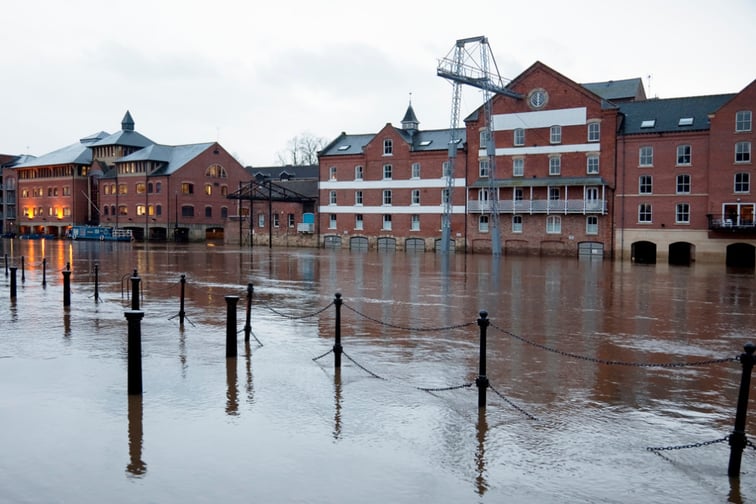

London businesses are highly likely to experience flash floods in more areas over the coming weeks, according to new research from Zurich UK.
The research found that commercial and mixed-use buildings in Kensington and Chelsea have the highest risk percentage at 63% in the London borough. That’s an alarming two-fifths of the capital’s businesses at risk of being hit by flash floods.
Other districts at high risk include Hammersmith and Fulham at 56%, Merton at 54%, Southwark at 54%, and Wandsworth at 53%.
Zurich said the expected flash floods have the potential to reach 42% of 301,000 commercial buildings and swamp 33,200 commercial basements in London.
Paul Redington, regional major loss property claims manager at Zurich UK, said London business owners would need to prepare for the long-term since there seems to be no end in sight to this rainstorm any time soon.
“Flooding now poses a serious threat to the capital’s homes and businesses, especially after the severe heatwave we have experienced in recent weeks,” Redington said. “More frequent and severe rainstorms could be the new normal in coming years.”
Zurich noted five ways in which owners to protect their businesses from flash flooding during this thunderstorm season:
